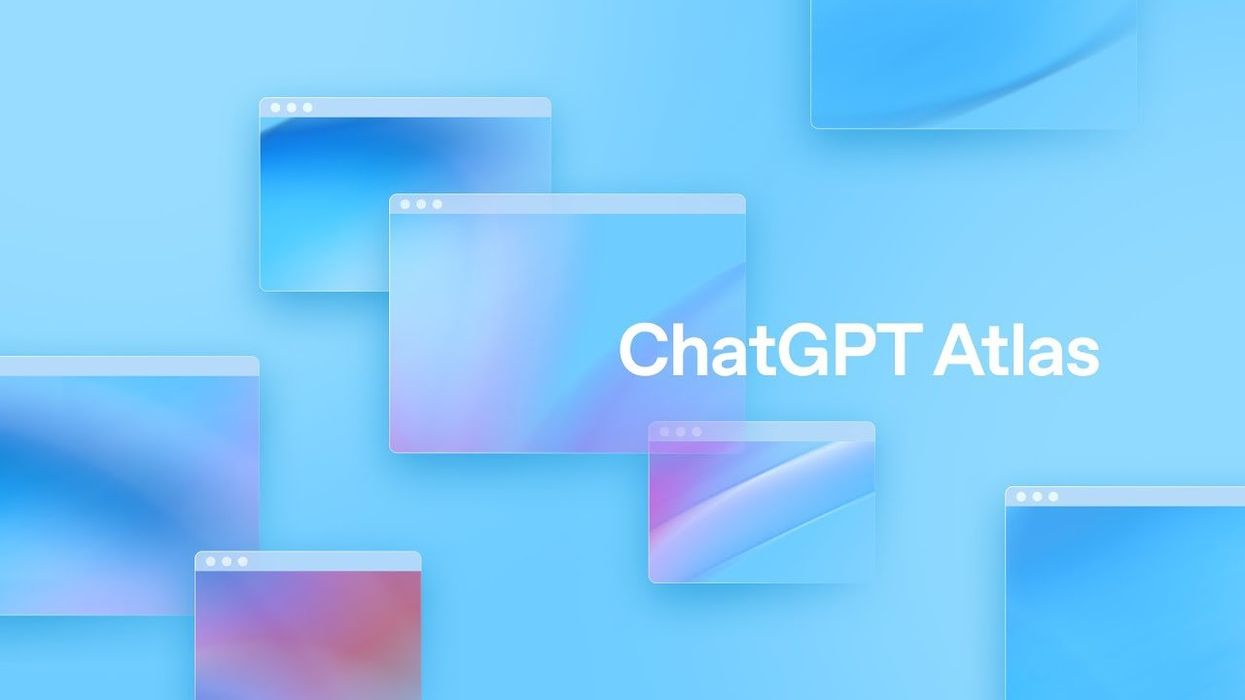Watch out Google Chrome! ChatGPT maker releases web browser that REMEMBERS everything you've seen
These new features are very similar to Google Chrome
- OpenAI, ChatGPT's parent company, has launched a web browser
- Called Atlas, this browser uses ChatGPT to assist while your browse
- With a built-in memory, it can recall browsing history and provide summaries
- It's free to use, but you'll need a paid subscription to access some features
- From today, only macOS users will have access to use it first
- Windows, iOS and Android versions are on their way soon
Don't Miss
Most Read
Latest
The team behind ChatGPT has launched a new AI-powered web browser that takes direct aim at Google Chrome.
Meet ChatGPT Atlas, OpenAI’s new browser that makes Artificial Intelligence (AI) the core of how you navigate the web. The new application, which is exclusive to macOS for the moment although versions for other devices are coming soon, makes ChatGPT available with a single click from any website — letting you call in assistance from AI help without switching between tabs or copying and pasting content.
Since ChatGPT now support memories, it's able to learn about how you use your web browser, so it can start to answer personalised queries. For example, you could ask ChatGPT questions like: “Find all the job postings I was looking at last week and create a summary of industry trends so I can prepare for interviews.”
In a traditional web browser, you'd have to scroll through your history to find the relevant pages, then make the notes yourself, or painstakingly copy-paste the listings into an AI client, like ChatGPT, one by one.
If you've never used ChatGPT before, it's an advanced large language model that can answer questions, rewrite text for you, advise and plan a project, and generate never-before-seen text based on a short written prompt. ChatGPT is multi-modal, meaning it can process and generate information across different formats beyond simple prose, including images, charts, video and audio.
The latest announcement from OpenAI comes after Google announced its own plans to integrate AI into its Chrome browser. Chrome already performs similar tasks with its own assistant, Google Gemini.
Here's how Atlas stacks up against Google's latest effort.
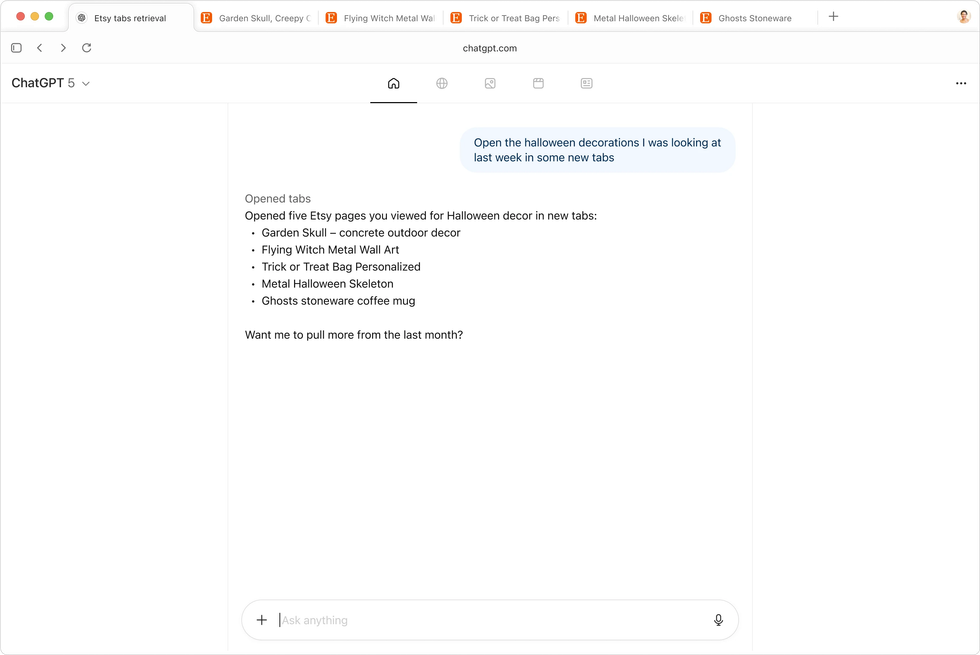 The new web browser Atlas includes clever memory features that remember details from sites you visit, so ChatGPT can bring back that context when you need it later | OPENAI PRESS OFFICE
The new web browser Atlas includes clever memory features that remember details from sites you visit, so ChatGPT can bring back that context when you need it later | OPENAI PRESS OFFICEWhat's arguably the most noteworthy is that the browser includes clever memory features that remember details from sites you visit, so ChatGPT can bring back that context when you need it later.
For example, you can ask it to "find all the properties that I can looking at this week, and create a table with key attributes of each home and the current price" – and it'll know exactly what you mean. Everything will happen in the background, so there's no need to bounce between dozens of tabs.
OpenAI says these memories are "private to your ChatGPT account". You can view or archive them at any time in settings, and deleting browsing history deletes any associated browser memories.
However, if you don't want the ChatGPT Atlas browser keeping tabs on everything you're doing — and making it all accessible at a later date with a quick query to the AI chatbot, you can easily toggle the setting off completely or tailor which sites you want it to access only.
Some of this functionality is reminiscent of the controversial Recall feature launched by Microsoft, which brings the same photographic memory to everything that happens on your laptop or desktop PC. It uses Copilot AI, which is built upon the same AI models as ChatGPT, to resume your work.
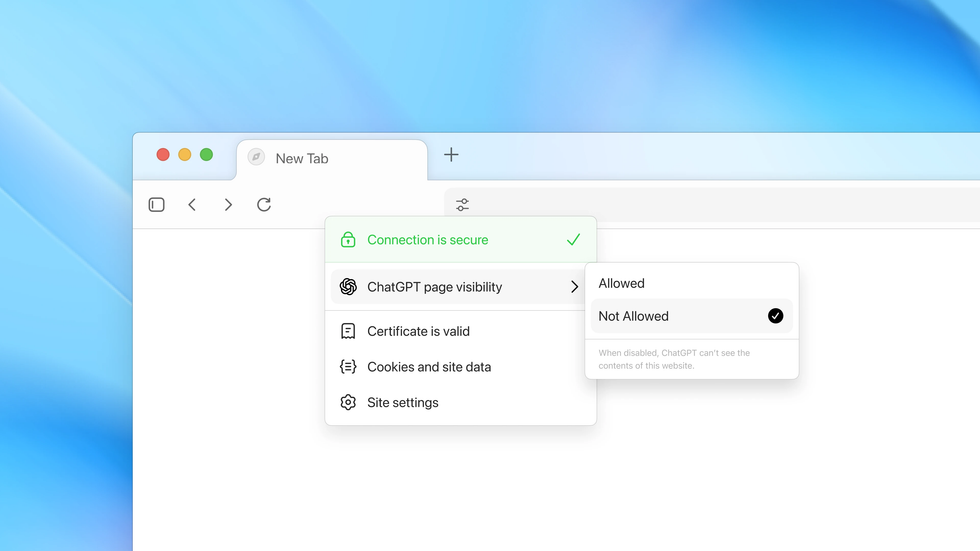
If you don't want the browser noting down everything you view, you can easily toggle the setting off completely or tailor which sites you want it to access only
|OPENAI PRESS OFFICE
You can also use the new AI sidebar feature – just click "Ask ChatGPT" on any page and it opens right there to help you understand what you're reading. It can summarise long articles and even explain complex topics.
On the other hand, Google's AI-powered browser uses Gemini to generate text, images, code, and more, with advanced reasoning and problem-solving capabilities. Gemini also already works with several Google products like Gmail, Google Home, and more.
Both Atlas and Google let you ask for product information and additional details when shopping for the best mattress toppers or best robot vacuum cleaners.
You can also have Atlas edit text for you and give suggestions while writing.
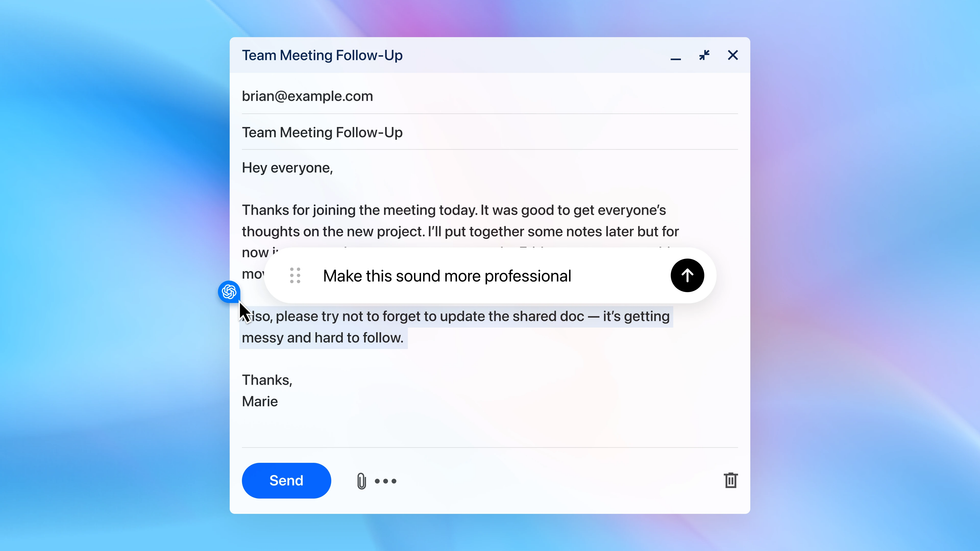
While in Atlas, ChatGPT can also help as you write in any open text field, offering in-line edits and suggestions
|OPENAI PRESS OFFICE
LATEST DEVELOPMENTS
Atlas is free to use, but if you're a Plus, Pro, or Business user, you can also use Agent mode, which can do work for you in your browser and can actually complete tasks for you automatically, like researching topics or booking appointments while you browse.
Imagine you're planning a dinner party - you could give ChatGPT a recipe and it'll find a grocery store, add all the ingredients to your cart, and order them to your house.
For work tasks, it can open past team documents, do competitive research, and compile everything into a brief.
The cost for these subscriptions is as follows:
- ChatGPT Plus: £20 per month
- ChatGPT Pro: £200 per month
- ChatGPT Team (Business): £30 per user per month when billed monthly, or £25 per user per month when billed annually
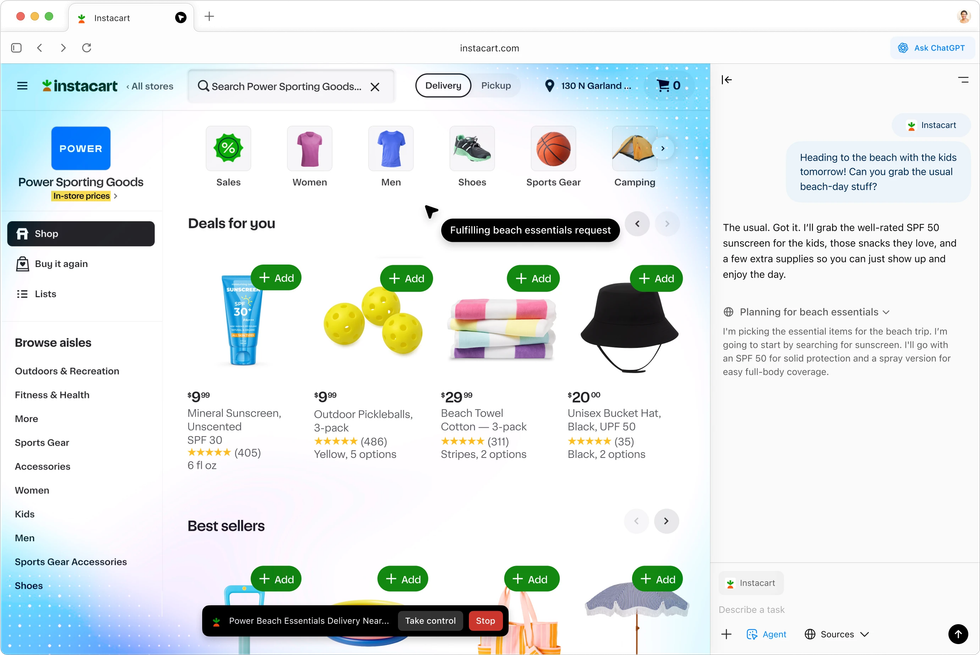
Atlas agent mode can find a grocery store, add all the ingredients to your cart, and order them to your house
|OPENAI PRESS OFFICE
If you're worried about cyber safety, OpenAI has also built in precautions to put in place. For instance, it can't download files, install extensions, or access other apps on your computer.
It'll also pause before taking actions on sensitive sites like banks.
To download Atlas and start using it, go to chatgpt.com/atlas, and follow the instructions on your browser.
Although not everyone has immediate access to Atlas yet. From today, only macOS users, which is anyone who uses an Apple desktop or laptop computer, have access. Windows, iOS and Android versions are on their way soon, but there's no confirmed release date yet.
More From GB News


